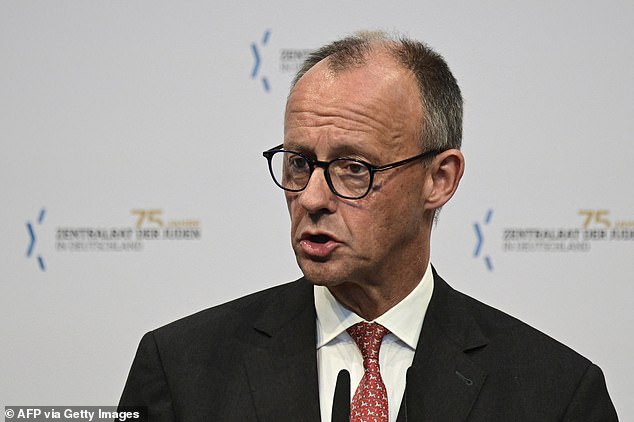Chancellor Friedrich Merz has admitted that Germany has been ‘living beyond its means for years’ with experts now warning that the country could face ruin without economic reforms.
The conservative German leader has caused uproar after declaring that the country could no longer afford the cost of its pensions system, which has soared to more than 31 per cent of GDP – one of the highest levels in Europe.
Merz also warned of a ‘profound epochal break’ and the need for ‘painful’ austerity measures to guarantee that young Germans would have any future prospects.
Economic adviser Marcel Fratzscher, who also heads the German Institute for Economic Research, said the government must tackle a €400 billion-a-year pensions bill that is already expected to rise in the next 10 years.
His remarks come as the economics ministry last week said in a report that the German pension system was ‘dysfunctional’ and a ‘grave’ threat to the economy, and predicted that by the middle of the next decade there will be one pensioner for every two people of working age.
Economics minister Katherina Reiche added that there was a ‘profound and urgent need for reform’ to ensure that Germany could afford its pensions.
However, Bärbel Bas, his Social Democratic Party labour and social affairs minister, called Merz’s claims ‘bulls**t’, while the President of Germany, Frank-Walter Steinmeier, hailed the welfare state as a ‘treasure’ and a ‘resource that has made our country what it is’ but acknowledged that the ‘system is cracking’.
It also comes after it was revealed earlier this year that Germany’s economy had shrunk for the second year in a row in 2024, preliminary figures showed.

German Chancellor Friedrich Merz addresses guests during the New Year’s reception of the Central Council of Jews in Germany (Zentralrat der Juden in Deutschland) on the occasion of its 75th anniversary, on September 17, 2025 at the Jewish Museum in Berlin
The Federal Statistics Office said that Europe’s largest economy had contracted by 0.2 per cent, continuing a slump started by a similar decline in 2023.
The German economy has been battered by external shocks and homegrown problems, including bureaucracy and a shortage of skilled labour.












